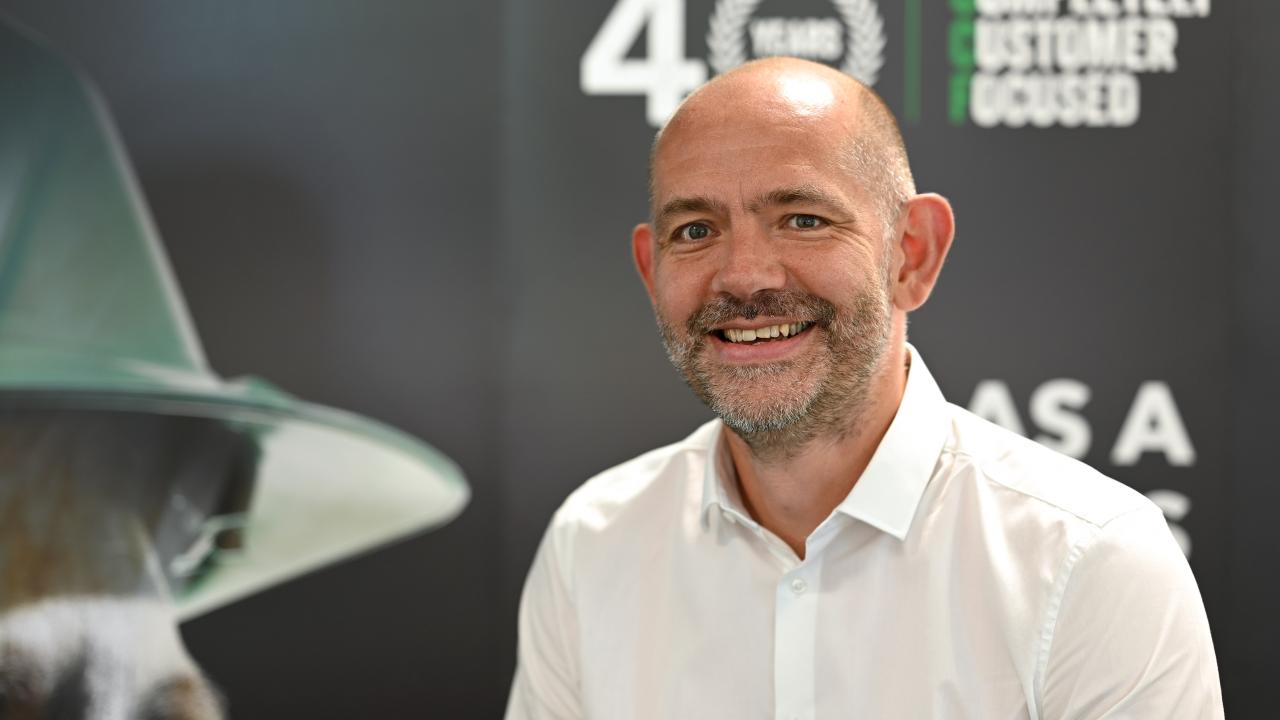

Close collaboration and a wealth of knowledge help CCF improve specification process
Instrumental to answering technical queries and finding the most appropriate and compliant building solutions based on the project brief, the Technical Team here at CCF ensures that customers always have access to high quality specification advice and support. Jolyon Berg, CCF’s Head of Technical, explains the team’s specialist role.
Q – The technical team are well placed to offer expert specification advice/support, has there been an increase in demand for their help and services?
Most definitely, yes. The team has only been together for a relatively short period of time but we are increasingly seeing demand and support for the services we are able to provide. Our customers are demanding more from the buildings and developments they are working on, not just in terms of sustainability for example, but across every aspect of the lifespan of that building or scheme. We believe in the future they will come to teams like us for the specialist advice and support they need in the specification process and through the development of a building.
The pace of change in terms of new regulations, new standards and so on is rapid, which I think is great for the industry. It means we need to keep up to date with these changes, but also work closely with our customers to increase our collective understanding of the new regulations. It will drive quality and improvement across the industry.
Q - How does the team’s experience and knowledge help to create confidence in products and also the quality of technical information available?
It is super important for us to be able to offer the best and most current advice available to our customers and I am really proud of the team we have here. Collectively this team has more than 100 years of experience, they have worked with a variety of leading manufacturers and have a fantastic understanding of the construction industry across a lot of different disciplines.
So, it is really important for us to stay up-to-date with not just what is happening across the industry, but also with all of our suppliers and the product portfolio they offer. We do that by having active and regular engagement with our suppliers and partners but also industry bodies. This ensures we have very good relationships with our suppliers, we work hard to understand what they are doing and the products they are creating but we also get a lot of support from them in return. It is a true collaboration and I think that is reflected in the quality of the service the team provides.
Q - Does working with a portfolio of manufacturers help the team to offer a broader range of advice and technical knowledge?
It absolutely does. The team has a very good technical grounding and we have all worked within our supply base so we know the products and the people very well. The fact we are able to call on this knowledge and experience improves the level of service we provide. For example, we have customers who might want to mix and match different products and solutions in one development. Using our own knowledge and experience, together with the technical understanding and information provided by our suppliers, means we are well-placed to create the right solutions and also new ways to utilise these different products. That sometimes involves coming up with a solution that the individual manufacturers have not considered before, but it means we can come up with the right products and the right systems for that particular development.
The team can offer advice and support in a wide variety of topics through our portfolio of suppliers and their own knowledge base that includes insulation, dry lining, fire protection and ceilings. We can also offer U-Value and condensation risk calculations and technical guidance on products as well as Building Regulations.
Q – The specification process has once again been recognised as vitally important to the success of a project. Does it help to have engagement and input from the early design stage?
Naturally it is always easier to be part of the specification process from the earliest stages of a development. It is not something that has always happened or is always possible, but we are seeing an increase in demand for our team’s input from an early stage. The specification process is now firmly in the spotlight and the new regulations regime is going to make that even more important moving forward.
Early engagement in the specification process is crucial as those designs will become fixed, there will be less scope for the deviation or changes than there has been historically. So, getting that specification right from the outset will be very important. It means that enjoying that close involvement during the early stages of a project helps the team to be involved in that design stage and offer their support and guidance on the best value solutions depending on each individual project and the specific requirements of each development. What is encouraging is that we are seeing a lot of support across the whole industry for these changes to regulations and for the importance of the specification process. There is undoubtedly a learning curve ahead and I think good collaboration at the early stages of projects will be key to successfully navigating it.
Q – Has the pandemic led to new ways the team engages, interacts and helps customers in terms of the information they are able to provide?
As the saying goes, necessity is the mother of invention. What has happened over the last 18 months was not something you would have predicted, but buildings are still being built. So, the team’s role has not changed in that respect, we have still been working with our suppliers and customers to find the right products for the right projects. But there have been obvious ways in which that role has changed in the way we work and engage with all our partners. The obvious ones have been using video conferencing, which we were used to using before the pandemic but we have now found ways to use it differently.
So, we have been able to still provide the quality technical briefings and presentations the team is used to delivering, but in ways that make greater use of the technology available. We use Google tools a lot, but again we use them differently. We have all got used to these different ways of working and the quality of the service has not been affected. I have no doubt there has been an improvement in efficiency thanks to the ways in which we all now use technology and understand a lot more how we can use them differently and more productively.
All this comes at a time when we are seeing a lot of changes within the industry in terms of regulations, but we have still been able to offer the knowledge and support that means our customers get the right products for the right projects. Ultimately that is what all the new regulations and changes mean, getting the right products for the right projects and we are simply finding different ways to make sure that happens.
Q - What specification trends and product innovations are likely to come to market in the next five years and beyond?
I think we will see two main trends in the future – building safety; and sustainability. The golden thread of information will continue to drive the industry forward and will play a central role in building safety. BIM (Building Information Modelling) will be a big part of that and it will be very important to make sure you have really good data and technical information about products. That data and information does not just relate to the completion of that project but is an integral part of the whole life of that building.
The industry is facing enormous challenges as it faces bigger targets for building but with fewer skilled workers. So, building safety becomes very important and the golden thread of information and digital tools are going to be a huge part of that. Secondly, sustainability has been part of the industry’s agenda for many years and if you ask 100 different people what sustainability means to them, you’re likely to get different answers. But we are seeing changes in the way we understand these terms and what it actually means. Clearly carbon reduction and the drive to net zero will be incredibly important across the industry, as it will be across the whole of society, and I think in the next few years we will see a bigger push on embodied carbon and resource depletion.
These two issues will drive product innovation over the next five years as well as the way we use those products. For example, working out how to re-use as well as recycle more materials will become increasingly important and that will drive changes in both products and building design. The scale of these challenges can seem too big to understand and deal with, but we are seeing a rapid pace of change already. With the technical knowledge and experience of our team we are always able to ensure our customers have access to high quality specification advice and support.
To find out more about CFF's specification support and advice click here.

